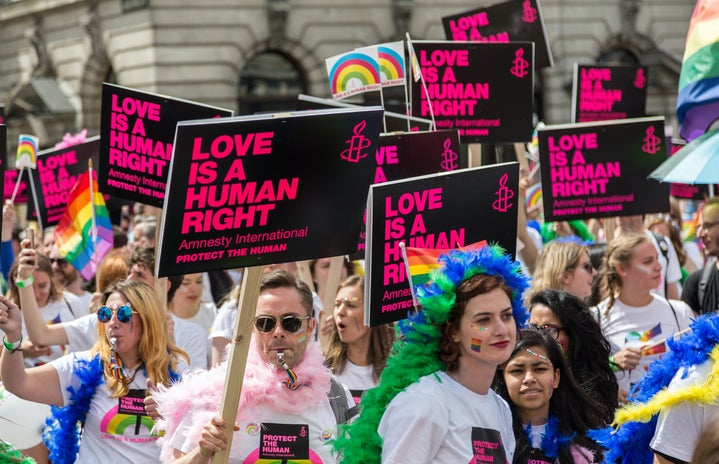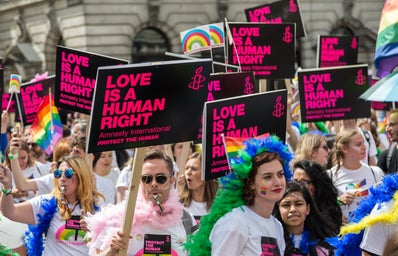Sexuality or sexual orientation: a person’s pattern or tendencies of sexual attraction
Sexuality is complex, confusing, and a deeply personal matter. It is an integral part of your identity which shapes how you view the world and your relationships with others. In the UK, we are lucky enough to live in a post-Stonewall society with legal protection against discrimination and equal rights in areas like marriage- but that does not mean that society itself is equal.
The truth is that society is heteronormative. It assumes that everyone is straight unless they say otherwise, and our societal structures and norms are all equipped for heterosexual couples. The modernisation of society is beginning to change this, however, by breaking down traditional gender roles and allowing straight couples to have different forms of relationships, but the fact of the matter is that straight people don’t have to come out, but LGBTQ+ people do.
From a young age, we have been brought up with the expectation that we will find a partner of the opposite sex, get married, have kids, and grow old together. Anything that deviates from that structure is seen as abnormal, and will face resistance in one form or another. It is seen as strange and noteworthy if a heterosexual couple live together and don’t eventually choose to get married, or if someone (primarily women) chooses not to have children, and it’s no different for the LGBTQ+ community. If you identify as something other than straight, you are out of the ordinary, and so you will face some challenges that others won’t.
One of the biggest of those challenges is that of a sexuality crisis. A person who is heterosexual is likely to not think too much about their sexuality, because society is set up with the assumption of being straight, and so that person won’t have a sense of disconnect from it, not in the same way that a gay person will. If you aren’t straight, you will probably realise it at some point during your teenage years (although not necessarily), and spend a lot of time trying to work out how you identify instead.
You might be the sort of person who realises immediately that you only like the same sex. You might be the type of person who spends the next ten years wavering to and from different terms. You might be the kind of person who settles on one term immediately, and then realise you weren’t quite right a few more times.
This is all part of why there isn’t one ‘gay experience’; people are different and so will have different experiences, but that crisis alone creates a shared experience that makes being gay a bigger part of your identity than being straight is for most heterosexuals. There is still far more discrimination for being LGBTQ+ than if you were heterosexual, and many will, unfortunately, face this, or at least the fear that they will be discriminated against.
The nature of heteronormative society means that heterosexuality is the default, and anything else requires extensive questioning. I’ve previously discussed with friends how sexuality is just an ongoing crisis in the back of the mind; whether you have it ‘right’ is a constant concern for many, but the truth is that there isn’t a right answer.
“Sexuality is a spectrum and everyone falls somewhere on it. Defining your sexuality is just a way to help you navigate the world and work out what relationships you want to have and with who.”
Heteronormativity will also make others around you question you when you first come out. It is a cliche to say ‘it’s just a phase’ or to ask ‘are you sure’ but it does happen often. Reactions like that tend to come from concern that you will face more discrimination than others or find it harder to find happiness, but that doesn’t mean that they don’t hurt. In a society that already makes you question yourself, it doesn’t help when others ask you things you are likely already asking.
Comments like that also stigmatise changing how you label your sexual orientation. If you initially come out to people as bisexual and then later realise that maybe you’re actually gay, a lot of people worry that changing labels will make it seem like it really was just a ‘phase’. The truth is that it will never be ‘just a phase’; it is you working out who you are.
There’s a lot more to this topic, as there always is, including things like romantic orientation and gender identity, which are central to the LGBTQ+ community and its discussions.
My takeaway here is that coming to terms with your sexuality is hard, but you shouldn’t be afraid to get it wrong. You’ll learn more about yourself along the way, and no matter where you end up, you’ll meet new people and have fun along the way. You’re the only one who needs to come to terms with your sexuality, and you’ve got as much time as you want to do it.


